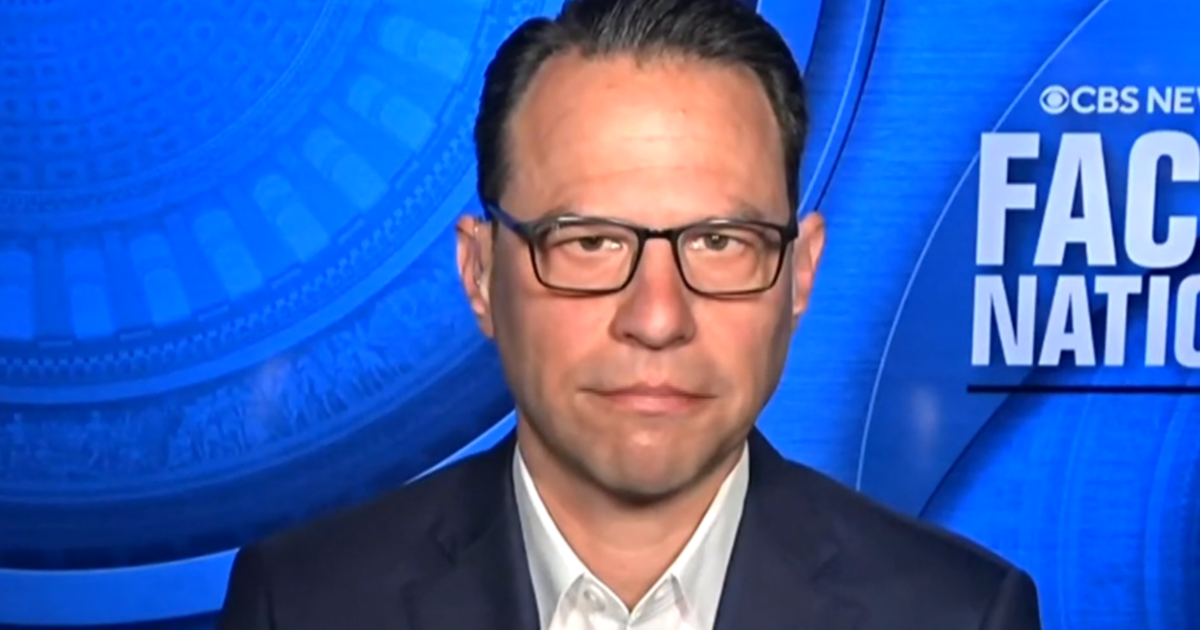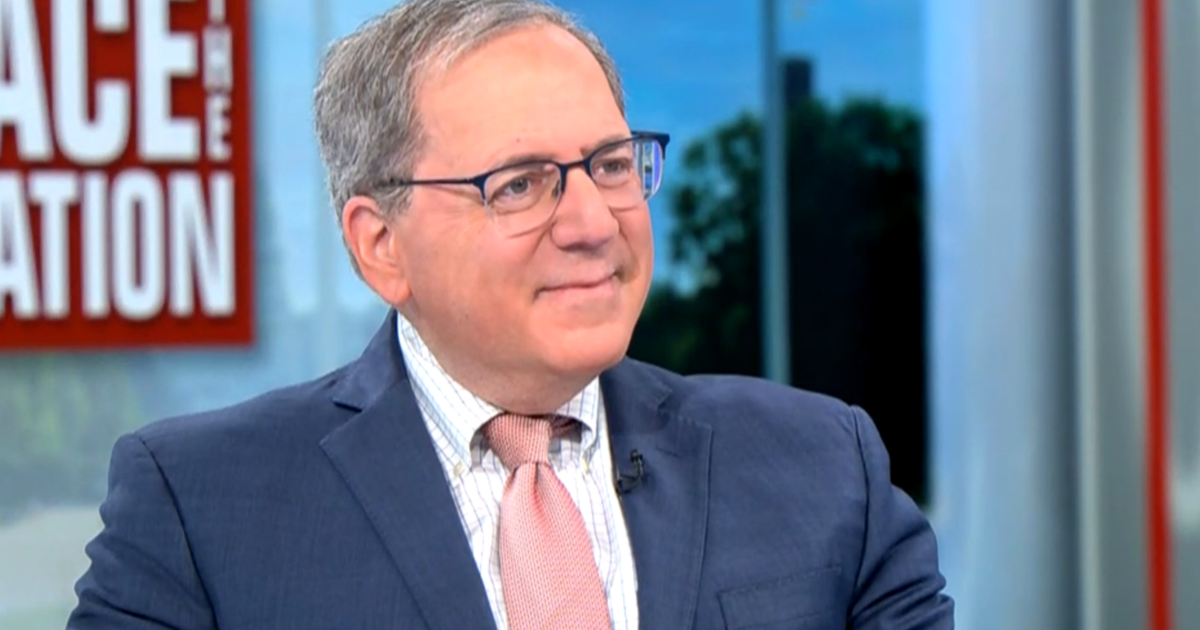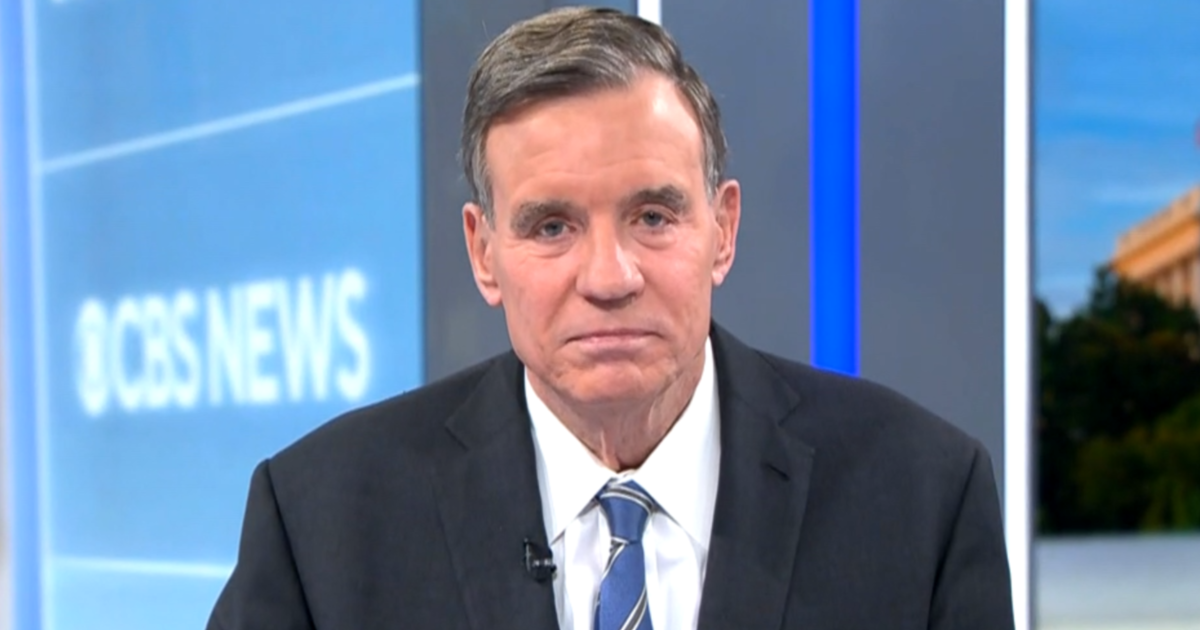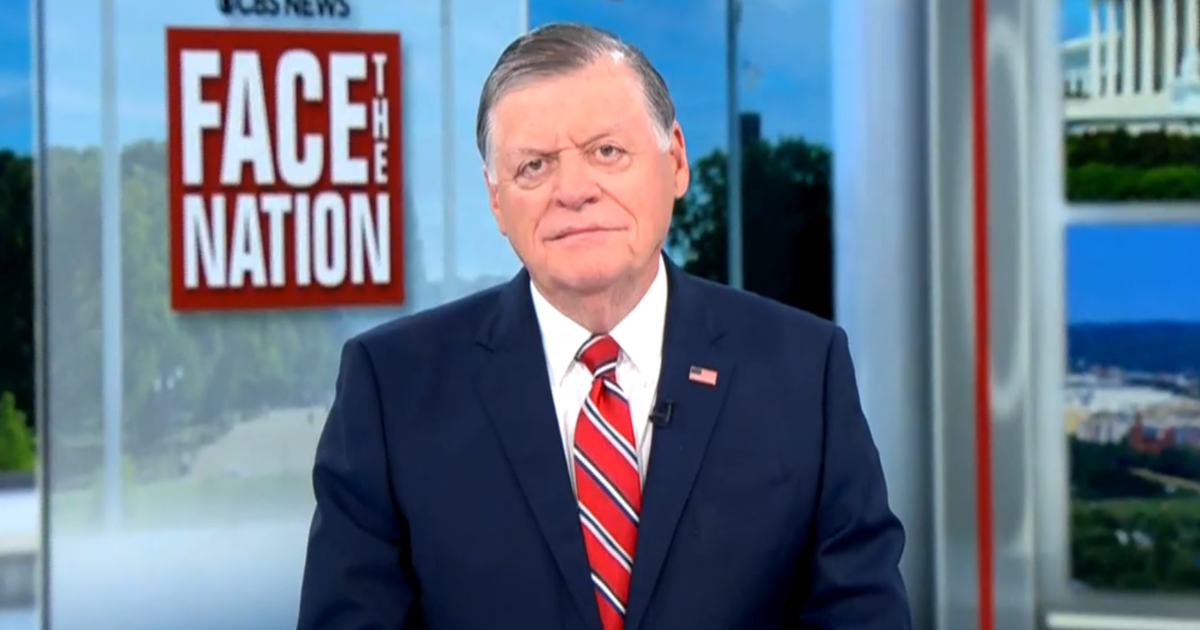Transcript: Ambassador Cui Tiankai on "Face the Nation," February 9, 2020
The following is a transcript of an interview with Ambassador Cui Tiankai that aired Sunday, February 9, 2020, on "Face the Nation."
MARGARET BRENNAN: Welcome back to FACE THE NATION. We want to take a closer look at efforts to contain the now over 37,000 confirmed cases of Coronavirus in China, where the death toll stands at at least 811. Joining us to talk more about the virus is China's ambassador to the U.S.. Welcome to FACE THE NATION, Ambassador Cui.
AMBASSADOR CUI TIANKAI: Thank you.
MARGARET BRENNAN: Our condolences--
AMBASSADOR CUI: Thank you very much.
MARGARET BRENNAN: --for these hundreds of fatalities.
AMBASSADOR CUI: Yeah.
MARGARET BRENNAN: Why hasn't the virus been contained?
AMBASSADOR CUI: Well, you see, this is a new virus. So virtually very few people knew anything about it at the beginning. That's how people are still learning to discover more about the virus and how it affects people and the channels of infections and trying their best to stop it.
MARGARET BRENNAN: The U.S. has offered repeatedly--
AMBASSADOR CUI: Yeah.
MARGARET BRENNAN: --to send CDC experts, American experts, to help out. Why does Beijing continue to ignore those offers?
AMBASSADOR CUI: I don't think it's been ignored. First of all-
MARGARET BRENNAN: Well, you haven't said yes.
AMBASSADOR CUI: Well, we- we welcome the American expert to participate in our efforts. And we are coordinating with the World Health Organization because a lot of things are done under the auspices of the World Health Organization. We certainly welcome American experts to join the actual group that the W.H.O., the assembly. And I'm sure there will be going to China very soon.
MARGARET BRENNAN: You expect Americans to be there as part of the W.H.O. but you don't want the CDC there?
AMBASSADOR CUI: First of all, America experts are on the list recommended by the W.H.O. We certainly respect- I think all of us respect the W.H.O. as the most professional intergovernmental body in the world and for the U.S. CDC, they have very frequent regular contact with the- their Chinese counterparts, the Chinese CDC. And even beyond that, some American experts have come to China already on their own individual basis. So there's ongoing contacts not only between the two governments, but also between the two CDC's and between the academic institutions and even some American companies are also offering help, technical help.
MARGARET BRENNAN: Well, I- I asked the question, because it also gets at there's a lot of unknown and a lot of suspicion because of that. And in fact, this week, Senator Tom Cotton, who sits on the Senate Intelligence and Armed Services Committee, suggested that the virus may have come from China's biological warfare program. That's an extraordinary charge. How do you respond to that?
AMBASSADOR CUI: I think it's true that a lot is still unknown and our scientists, Chinese scientists, American scientists, scientists of other countries are doing their best to learn more about the virus, but it's very harmful. It's very dangerous to stir up suspicion, rumors and spread them among the people. For one thing, this will create panic. Another thing that it will fend up racial discrimination, xenophobia, all these things, that will really harm our joint efforts to combat the virus. Of course, there are all kinds of speculation and rumors. There are people who are saying that these virus are coming from some- some military lab, not of China, maybe in the United States. How- how can we believe all these crazy things?
MARGARET BRENNAN: You think it's crazy. Where did the virus come from?
AMBASSADOR CUI: Absolutely crazy.
MARGARET BRENNAN: Where did the virus come from?
AMBASSADOR CUI: We still don't know yet. It's probably according to some initial outcome of the research, probably coming from some animals. But we have to- to discover more about it.
MARGARET BRENNAN: There has been some outcry on social media, particularly after the death of Dr. Li Wenliang. He had made public warnings for weeks before the government acknowledged this was happening. In fact, authorities had forced him to disavow what he had said previously, which turned out to be true. The Communist Party of China is now investigating this. Why?
AMBASSADOR CUI: Well, we are all very saddened about the death of Dr. Li. He is a good doctor. He was a devoted doctor, and he did his best to protect people's health. We are so grateful to him. But you see, he was a doctor and a doctor could be alarmed by some individual cases. But as for the government, you have to do more. You have to base your decisions, your announcement on more solid evidence and signs.
MARGARET BRENNAN: But do you think silencing him in the beginning was a mistake?
AMBASSADOR CUI: I- I don't know who tried to silence him, but there was certainly a disagreement or people were not able to reach agreement on what exactly the virus is, how it is affecting people. So there was a process of trying to discover more, to learn more about the virus. Maybe some people reacted not quickly enough. Maybe Dr. Li, he perceived some incoming dangers earlier than others, but this is- this could happen anywhere, but whenever we find there's some shortcoming,--
MARGARET BRENNAN: Yeah--
AMBASSADOR CUI: --we'll do our best to correct it.
MARGARET BRENNAN: Have Chinese authorities detained the citizen journalist, Chen Qiushi? He has disappeared and his videos revealed a lot of what was happening with this virus.
AMBASSADOR CUI: I'm sorry, I have not- never heard of this guy, so I don't have any information to share with you.
MARGARET BRENNAN: His videos are how the rest of the world has seen some of the images of what's happening. I want to also ask you quickly, Secretary of State Mike Pompeo gave an extraordinary speech yesterday to a- a number of governors from all around the United States. And he harshly criticized the Chinese Communist Party and he said that your country is targeting states, cities, schools, academic institutions to try to figure out how to exploit them. What exactly is the intention of the Chinese government? Because the secretary of state says it's not good.
AMBASSADOR CUI: I always believe the real foundation of China-U.S. relations is the friendship and mutual understanding between our peoples. So this is the root of state to state relations and there's such an infusion among American states, cities and towns and ordinary Americans to learn more about China, to develop friendship with Chinese people, to facilitate cooperation between our two countries.
MARGARET BRENNAN: Well, he- he's--
AMBASSADOR CUI: I don't- I don't think anybody has any reason to guess the will of the people.
MARGARET BRENNAN: Well, he specifically referenced concentration camps in Xinjiang. He talked about American institutions and inadvertently investing in surveillance of Muslim minorities. Do you want to respond to that point?
AMBASSADOR CUI: That's totally wrong. That's totally wrong because the core issue in Xinjiang is how to combat terrorism. You see, some years ago until most recently, people in Xinjiang were victims to rising terrorist- terrorist attacks. There were thousands of such attacks hurting and even killing hundreds of thousands of people. So, we have to do something to stop this threat to the very well-being and the lives of the people there.
MARGARET BRENNAN: OK.
AMBASSADOR CUI: So, without tremendous efforts now, for the last three years,--
MARGARET BRENNAN: Yeah.
AMBASSADOR CUI: --there has been no such terrorist attack. So people have a much better safety there, security there. And people are happy there.
MARGARET BRENNAN: All right, Ambassador, thank you for telling your side of the story. We will be right back with new numbers from our CBS News Battleground Tracker.



